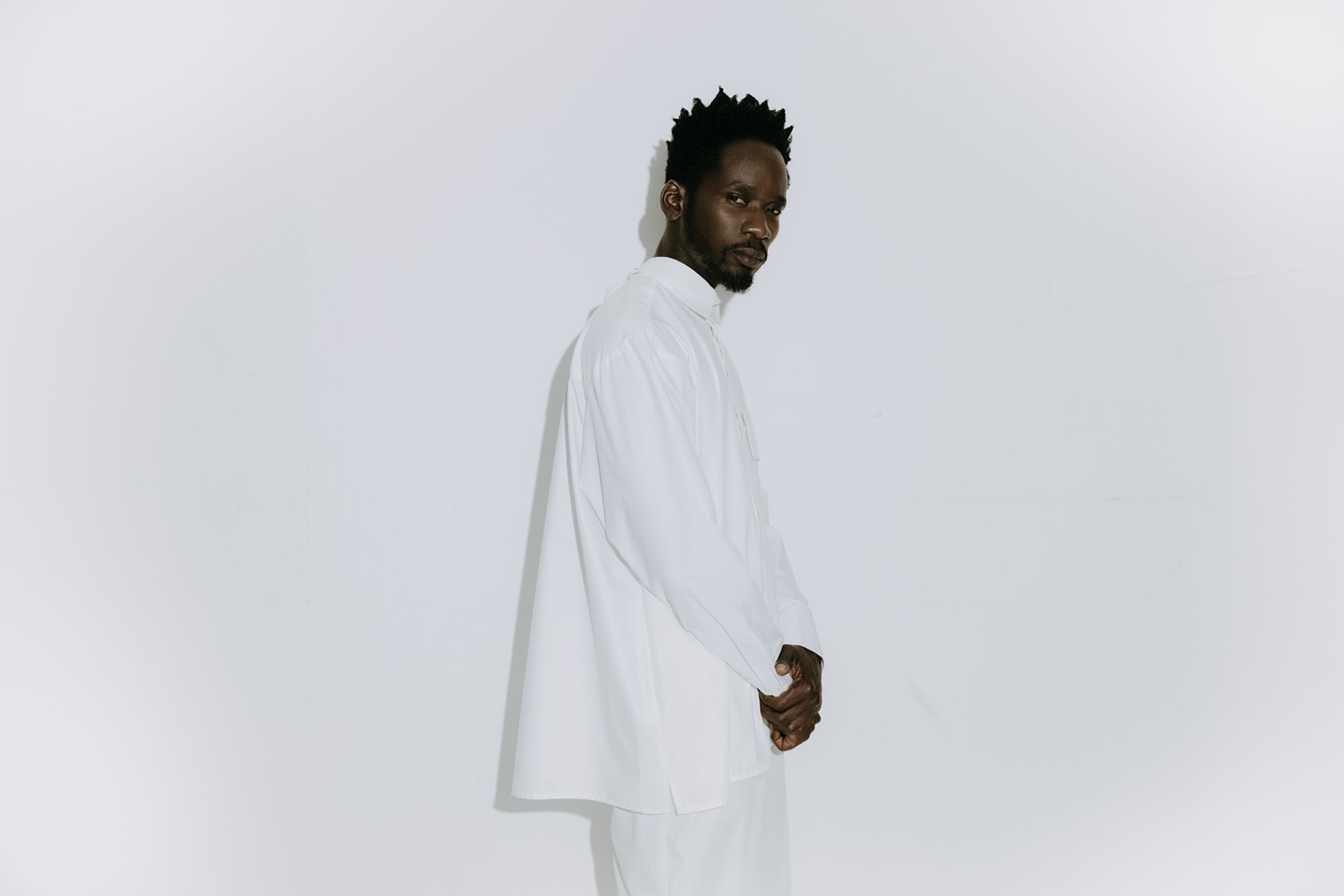It was a painting in the lobby of a Benin hotel last year that changed the way Afrobeats star Mr Eazi thought about art. “I saw this piece by (Benin-based artist) Patricorel of two skeletons sitting on a bench,” the 32-year-old Nigerian music star told CNN in an interview via Zoom. “For me, it was so striking because as soon as I saw it, I just knew it was about love… (and the idea of) ‘til death do us part. And I realized that visual arts could really represent the emotions in (my) songs.”
The encounter kickstarted a desire in Mr Eazi (born Oluwatosin Oluwole Ajibade) to take listeners “beyond music,” and create a “multi-sensory experience” for his next album.
The result is the much anticipated 16-track “The Evil Genius” (out October 27) on which each song is accompanied by a specially commissioned piece of art. The works will also be exhibited in galleries internationally — in Accra, Lagos, London (where they will be displayed as part of a “listening experience” the 1-54 Contemporary African Art Fair between October 12—15) and in New York.
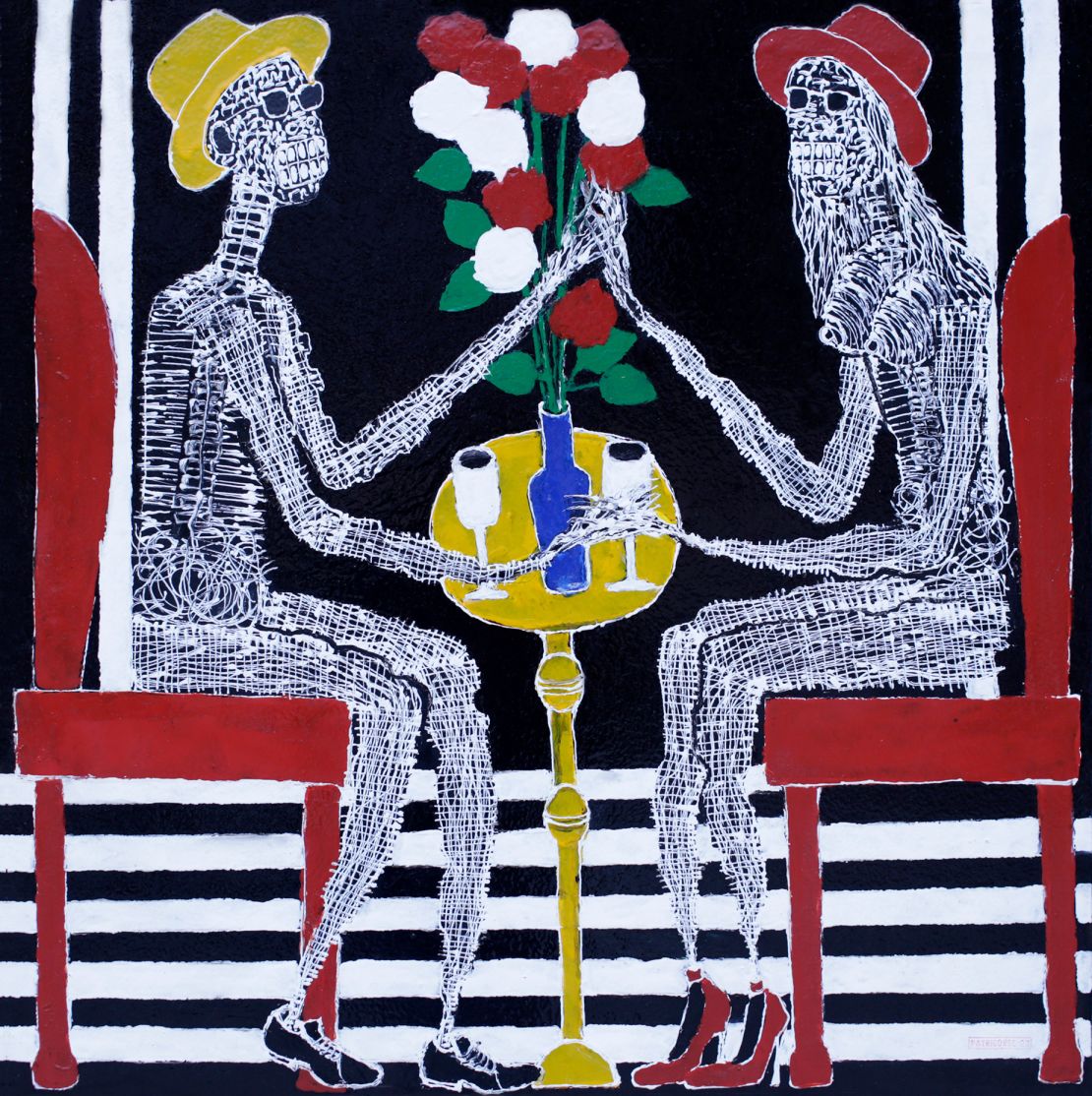
Fusing influences is something Mr Eazi — who is known as the creator of Banku Music (a combination of Ghanaian and Nigerian sounds and culture) — has made his calling card. “The Evil Genius” is a “pan-African project,” he said, written over two years and recorded in Ghana, Nigeria, Benin and Rwanda, as well as the US and UK. The artwork, too, is drawn from across the continent: with contributions from 13 visual artists from Zimbabwe, South Africa and Benin to Togo, Nigeria, Ghana, Cameroon, Senegal and Kenya.
“The Evil Genius” is Mr Eazi’s most personal album yet, he told CNN, exploring themes of success, fear, family, religion and relationships as well as his battle to come to terms with other people’s interpretations of him.
“I realised that I had an obsession… not with who I think I am internally, but who other people think I am,” he explained. “It was at the point where it was like a prison. I just couldn’t sustain it.” Taking that pressure and turning it into introspection, the album is both a newly personal portrait of a man defining who he is in real time, and a reintroduction of sorts to the groundbreaking vocalist who has collaborated with the likes of Beyoncé and Reggaeton star J Balvin over the last decade.
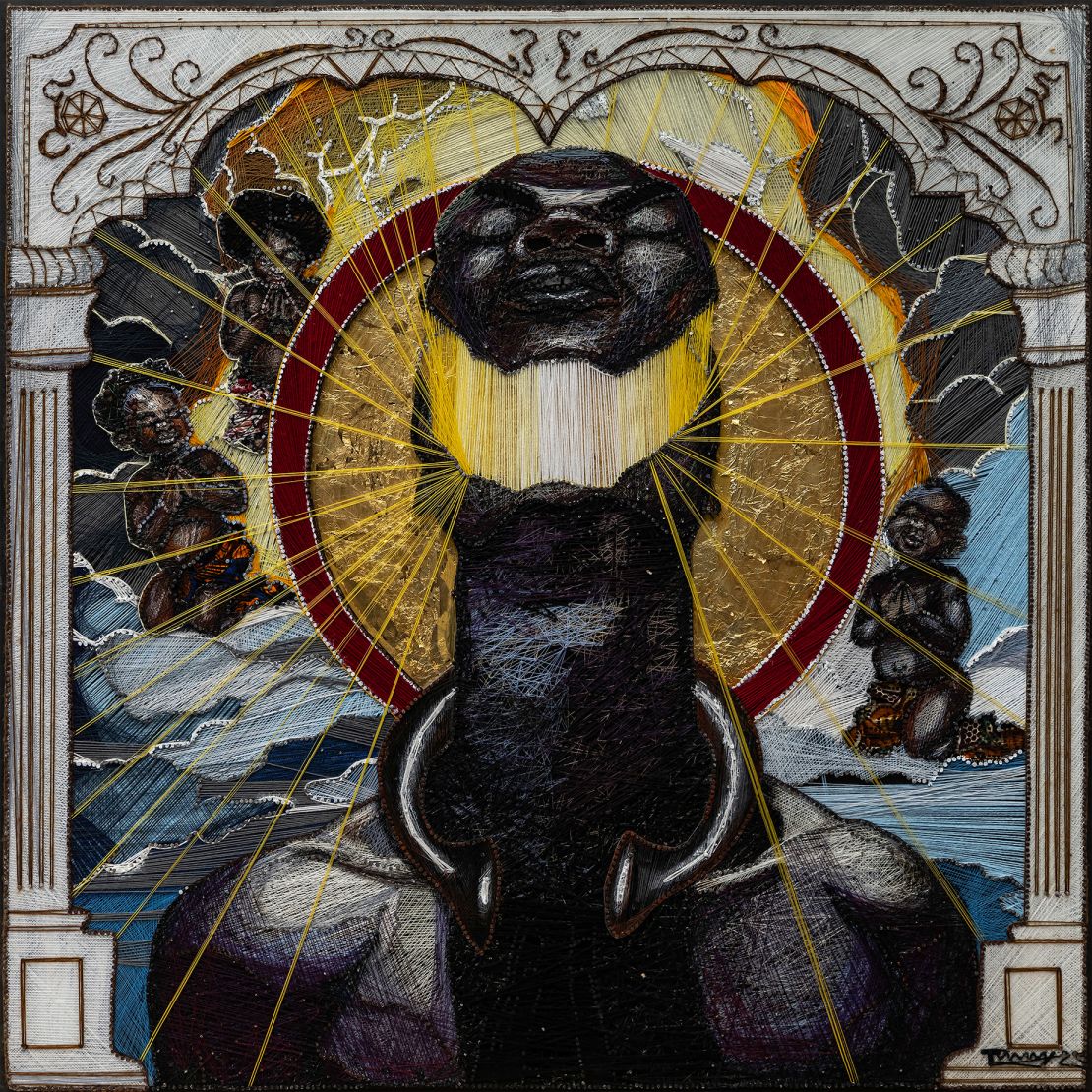
Take the album’s opening song, “OLÚWA JỌ̀,” which sets the tone for the project both aesthetically and sonically, starting with a pleading prayer and an equally visceral visual by Nigerian artist Tammy Sinclair.
“I have all these blessings but I’m also scared,” Eazi explained of the music. “That song is the first time I actually communicate that I’m scared of losing it all. I say in the chorus (in Yoruba, one of the three main languages spoken in Nigeria) ‘come lift me up, God, don’t let me fall’.”
Sinclair’s artwork — an embroidered portrait of a man with his head raised to the skies, light rays beaming from within him as cherubs look on in the background — captures that sense of divine surrender. Using a style known as “string art”, the image is shaped through a collection of yarn and thread lines and took a month to create.
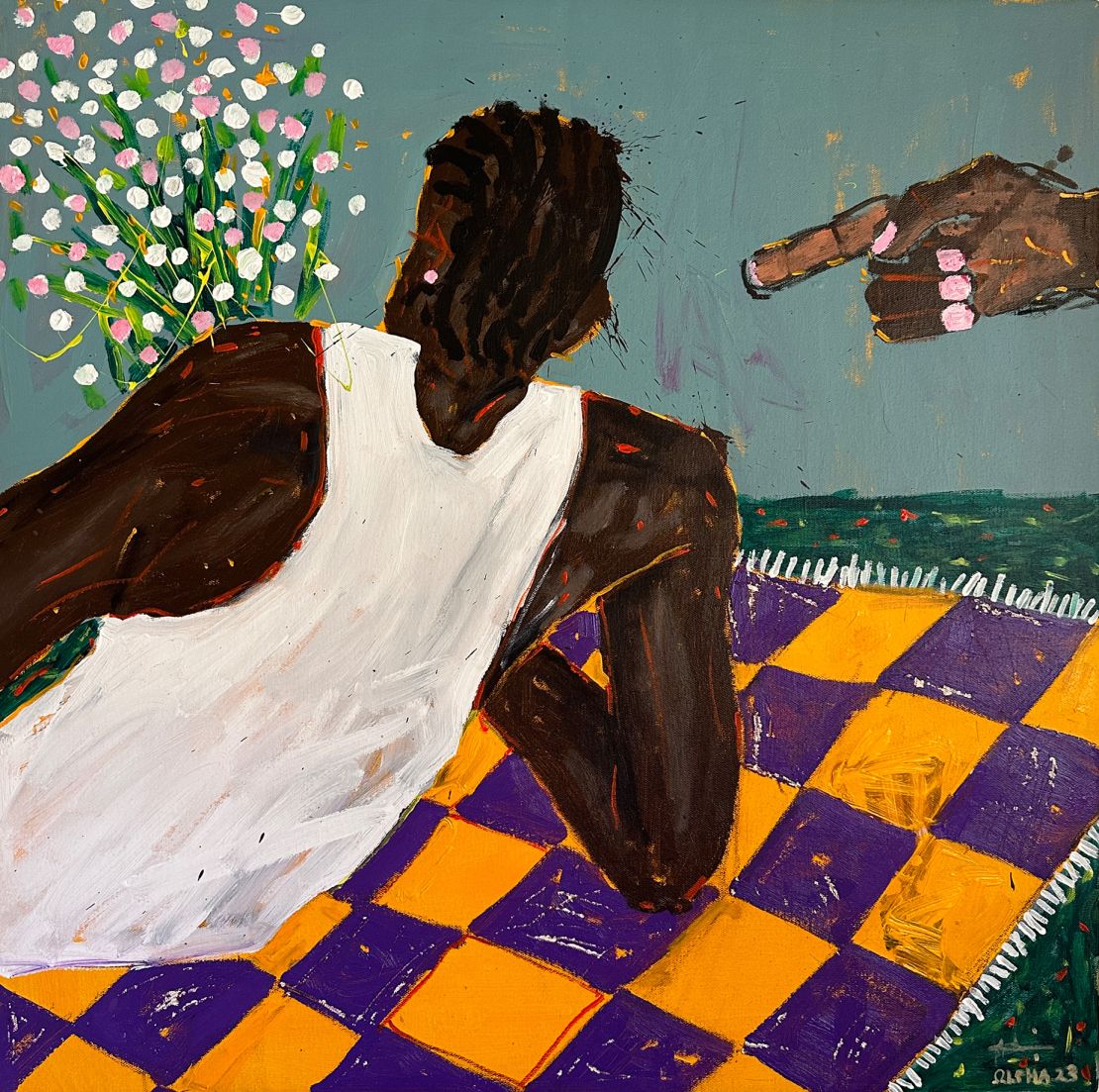
“I listened to (the song) over and over for a couple of days,” said Sinclair of their process in an interview with CNN. “I drew inspiration from his emotions and of course, the lyrics — and an image flashed in my head. I wanted to evoke hope, honesty and fear.”
On another track, “Mandela,” the Togolese artist Foli Kossi Gérard Tete (known as Tesprit) worked with materials — mostly the soles of salvaged flip flops — discarded in landfills in Togo’s capital city of Lomé to create a 3D sculpture of a young son perched on his father’s lap.
“I speak about the sacrifices (made by) my dad that have brought me to this point,” Mr Eazi says of “Mandela.” “My dad… prayed for me, he fought battles for me so that I wouldn’t get into trouble…”
The lyrics provided inspiration for Tesprit to create his own intimate portrait of fatherhood. “I was moved by Mr Eazi’s story and his relationship with his father,” he told CNN. “My artwork symbolizes protection… The presence of a cross in the artwork (represents) faith, dreams and a hope for a better life.”
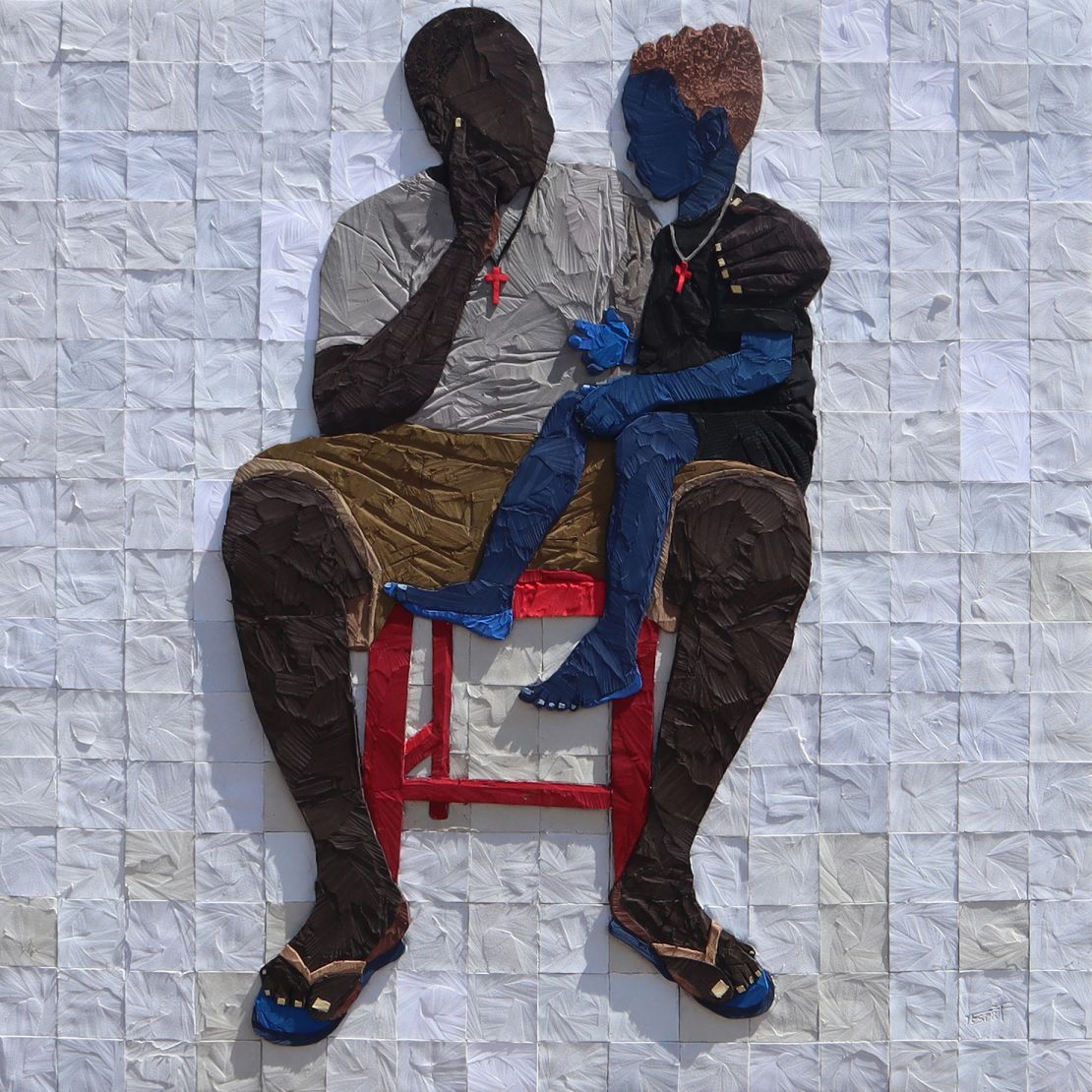
The process of piecing together the project has been an exhilarating one for Mr Eazi, who sourced artists by way of personal relationships as well as via social media and at art fairs in cities like Cape Town, South Africa. But, he admits, he is still getting to grips with the art world. “I interacted with art in a way where there was no boundary,” he said. “I just saw the art and it spoke to me. Bringing these two worlds together is introducing art to people like myself, who thought it was just for bougie people. We’re dropping the barriers (to) consumption.”
And as the profile of African creativity continues to soar in the global sphere with the rise of genres like African pop, R&B, Afrobeats and dance genres such as amapiano, African artists are in a better position than ever to reclaim their own image.
“One of the most exciting things for me is that art represents an opportunity to discover people without a pre-bias… it’s exerting soft power,” said Mr Eazi. “We’re defining ourselves through these mediums that are free; there’s no judgment in art. And there’s a repositioning and a boldness that it’s bringing — and economic freedom, a lot of people are moving out of poverty by their (own) hands and by their creativity.”
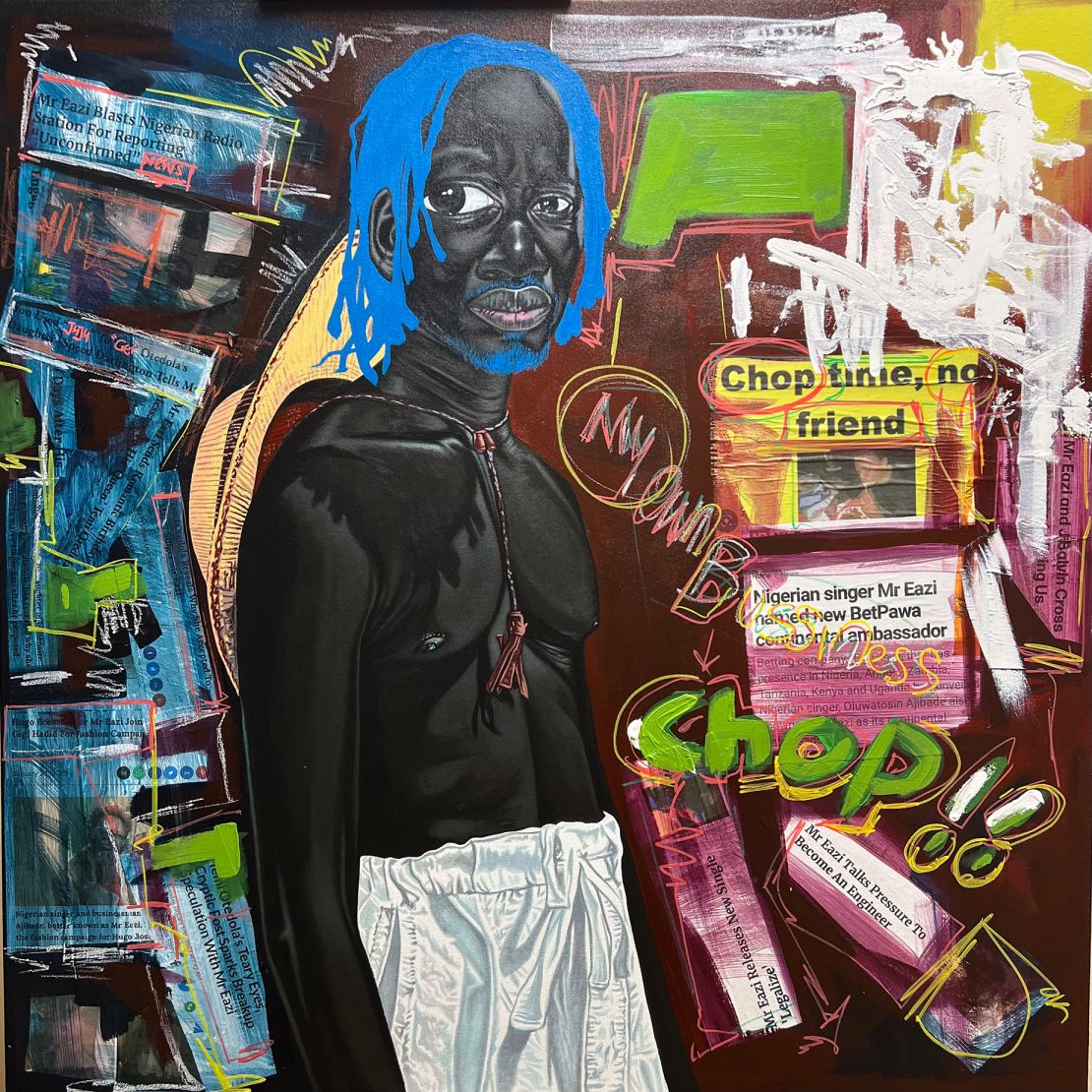
And the possibilities for collaborations across mediums to maximize reach and impact are proving to be endless. “It’s an ecosystem,” Mr Eazi summarises. “African music should be in African film and African art with African music… That’s culture, that’s the flood. Hitting people in life with unabashed, undiluted Africanness and pride and that’s what excites me about this collaboration.”
Mr Eazi’s album “The Evil Genius” will be released on 27 October. The art and music experience will be on display at 1-54 Contemporary African Art Fair 2023 at Somerset House, London from 12 - 15 October.
